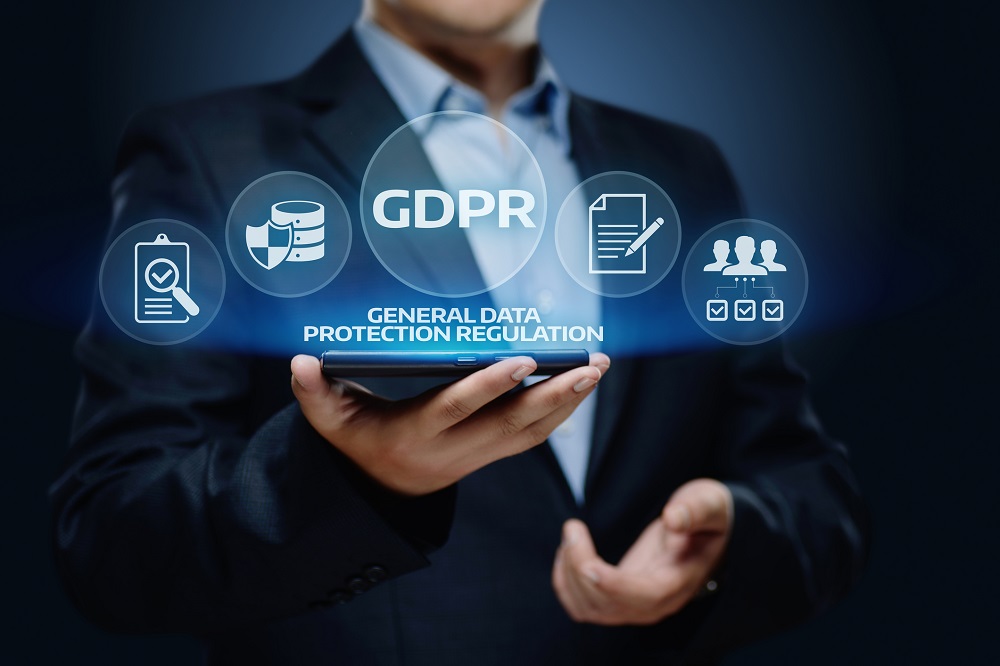Navigating the Evolving Landscape of Data Privacy
 In today's digital age, personal data has become a valuable commodity, fueling the growth of countless businesses and technologies. However, the massive collection and exploitation of individuals' data have raised significant privacy concerns. As data breaches and misuses continue to make headlines, robust regulations like the General Data Protection Regulation (GDPR) have emerged to protect individuals' data rights and ensure responsible data practices.
In today's digital age, personal data has become a valuable commodity, fueling the growth of countless businesses and technologies. However, the massive collection and exploitation of individuals' data have raised significant privacy concerns. As data breaches and misuses continue to make headlines, robust regulations like the General Data Protection Regulation (GDPR) have emerged to protect individuals' data rights and ensure responsible data practices.
Data Privacy Concerns: A Growing Challenge
The sheer volume of personal data collected by companies is staggering. From online browsing histories and social media activities to mobile app usage and IoT device data, businesses are constantly gathering vast amounts of information about our lives, preferences, and behaviors. While this data can be used to improve products and services, it also raises concerns about exploitation, discrimination, and potential misuse.
Moreover, the risk of data breaches poses a severe threat to individuals' privacy and security. High-profile incidents, such as the Equifax breach that exposed the personal information of nearly 150 million people, have highlighted the devastating consequences of inadequate data protection measures. Cybercriminals can exploit leaked data for identity theft, financial fraud, and other malicious activities, causing significant harm to individuals and businesses alike. As emerging technologies like artificial intelligence, facial recognition, and big data analytics continue to advance, new privacy implications arise. These technologies can enable unprecedented levels of surveillance, profiling, and manipulation, raising fears about potential infringements on civil liberties and human rights.
As emerging technologies like artificial intelligence, facial recognition, and big data analytics continue to advance, new privacy implications arise. These technologies can enable unprecedented levels of surveillance, profiling, and manipulation, raising fears about potential infringements on civil liberties and human rights.
The Regulatory Response: GDPR and Beyond
In response to mounting privacy concerns, governments worldwide have implemented various data protection regulations to safeguard individuals' data rights. The most significant of these is the European Union's General Data Protection Regulation (GDPR), which came into effect in 2018. The GDPR established a comprehensive set of rules governing the collection, use, and storage of personal data within the EU. It introduced principles like data minimization, requiring companies to collect only the necessary data, and explicit consent, giving individuals greater control over how their data is used. Additionally, the GDPR grants individuals rights such as the right to access, rectify, and erase their personal data, as well as the right to data portability.
The GDPR established a comprehensive set of rules governing the collection, use, and storage of personal data within the EU. It introduced principles like data minimization, requiring companies to collect only the necessary data, and explicit consent, giving individuals greater control over how their data is used. Additionally, the GDPR grants individuals rights such as the right to access, rectify, and erase their personal data, as well as the right to data portability.
While the GDPR primarily applies to entities operating within the EU, its global influence has been far-reaching. Many companies worldwide have adopted GDPR-compliant practices to ensure compliance and maintain access to the European market. This has set a new standard for data privacy and raised consumer expectations globally.
Other regions have followed suit with their own data protection laws, such as the California Consumer Privacy Act (CCPA) in the United States and Brazil's Lei Geral de Proteção de Dados (LGPD). This trend towards stronger data privacy regulations reflects the growing recognition of individuals' rights over their personal information.
Challenges and Compliance: A Delicate Balance
 Complying with data privacy regulations like the GDPR can be a complex and costly endeavor for organizations. Implementing robust data security measures, obtaining explicit consent, and providing individuals with access and control over their data requires significant resources and operational changes.
Complying with data privacy regulations like the GDPR can be a complex and costly endeavor for organizations. Implementing robust data security measures, obtaining explicit consent, and providing individuals with access and control over their data requires significant resources and operational changes.
Moreover, there are potential conflicts between data privacy and other interests, such as national security, law enforcement, and innovation. Striking the right balance between protecting individual privacy and enabling legitimate data use for societal benefits remains an ongoing challenge.
As new technologies and data practices emerge, regulations must constantly evolve to keep pace. Harmonizing data privacy laws across different jurisdictions is also crucial to ensure consistent protection and avoid compliance burdens for businesses operating globally.
The Future of Data Privacy: Empowering Individuals
Looking ahead, the data privacy landscape is likely to continue evolving rapidly. New technologies like blockchain and decentralized data management systems may offer innovative solutions for enhancing data privacy and control. However, they may also introduce new challenges that require regulatory oversight. Consumer awareness and advocacy will play a vital role in shaping the future of data privacy. As individuals become more informed about their data rights and the implications of data collection practices, they can exert pressure on businesses and policymakers to prioritize privacy and ethical data practices.
Consumer awareness and advocacy will play a vital role in shaping the future of data privacy. As individuals become more informed about their data rights and the implications of data collection practices, they can exert pressure on businesses and policymakers to prioritize privacy and ethical data practices.
Privacy-focused organizations and movements, such as the Electronic Frontier Foundation (EFF) and the MyData Global movement, are working to empower individuals and promote data sovereignty. Their efforts, combined with ongoing regulatory developments, aim to create a future where individuals have greater control over their personal information and can trust that their data is being handled responsibly.
Ultimately, achieving a balance between data privacy and innovation will require collaboration among all stakeholders – consumers, businesses, policymakers, and technology experts. By fostering transparency, accountability, and ethical data practices, we can harness the benefits of data-driven technologies while protecting individuals' fundamental rights to privacy and self-determination. As the digital landscape continues to evolve, remaining vigilant and proactive about data privacy will be essential. By staying informed, advocating for stronger protections, and demanding responsible data practices, individuals can play a pivotal role in shaping a future where their personal data is safeguarded and their privacy rights are respected.
As the digital landscape continues to evolve, remaining vigilant and proactive about data privacy will be essential. By staying informed, advocating for stronger protections, and demanding responsible data practices, individuals can play a pivotal role in shaping a future where their personal data is safeguarded and their privacy rights are respected.






































